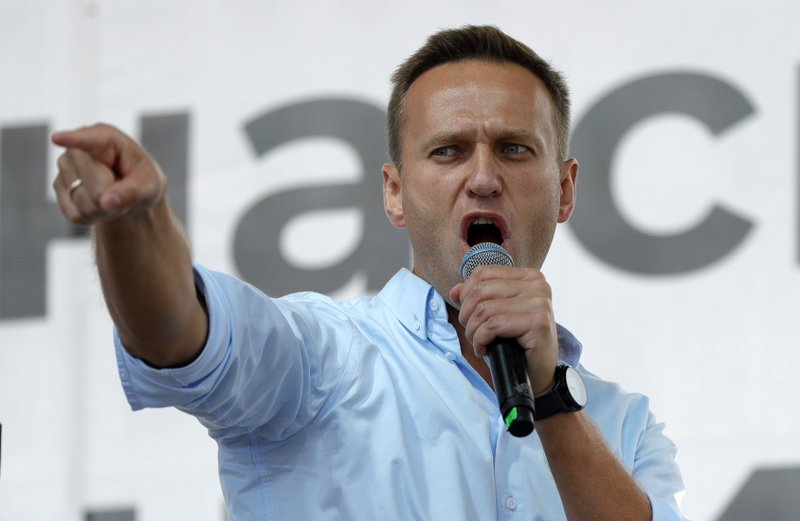MOSCOW, (Reuters) – Allies of jailed and hunger-striking Kremlin critic Alexei Navalny said they plan what they hope will be the largest street protests in modern Russian history on Wednesday to highlight Navalny’s declining health and a crackdown on his supporters.
“Things are developing too quickly and too badly,” they wrote in a statement on Navalny’s website announcing their plans for nationwide protests. “We can no longer wait and postpone. An extreme situation demands extreme decisions.”
The protests, which the authorities regard as illegal and have broken up with force in the past, are planned for the same day as President Vladimir Putin gives an annual state-of-the-nation speech to the political elite.
Navalny, a fierce opponent of Putin, started refusing food on March 31 in protest at what he said was the refusal of prison authorities to provide him with adequate medical care for acute back and leg pain.
A medical trade union with ties to Navalny said on Saturday he was in a critical condition, citing medical tests which it said showed that Navalny’s kidneys could soon fail, which could lead to cardiac arrest.
Prison authorities say they have offered Navalny proper medical care but that the 44-year-old opposition politician has refused it and insisted on being treated by a doctor of his choice from outside the facility, a request they have declined.
Russia’s ambassador to Britain said in a BBC TV interview aired today that Navalny was attention-seeking, but that Moscow would ensure he lived.
“He will not be allowed to die in prison, but I can say that Mr. Navalny, he behaves like a hooligan, absolutely,” Ambassador Andrei Kelin said in the interview.
“His purpose for all of that is to attract attention for him(self).”
Navalny has said prison authorities are threatening to put him in a straitjacket to force-feed him unless he accepts food.
His supporters face the prospect of their movement being officially outlawed and declared extremist, a move that would open up activists to long jail terms.
Navalny’s allies had declared a moratorium on protests after staging three demonstrations at the height of winter which saw thousands detained in a harsh crackdown by authorities. Some protesters were unhappy that the demonstrations were halted, but organisers said they would hold a big protest once 500,000 people had registered online to take part.
In light of Navalny’s poor health, organisers said they were calling the protest on Wednesday anyway despite being around 40,000 people short of their target.
“Navalny is now in a prison camp and his life is hanging by a thread. We don’t know how much longer he can hold out,” they said. “The life of Alexei Navalny and the fate of Russia depend on how many citizens take to the streets on Wednesday.”
Navalny’s daughter Dasha, a student at Stanford University, made an appeal on Twitter today for her father to see a doctor of his choice.
Russia jailed Navalny for 2-1/2 years in February for parole violations he said were fabricated. He was arrested in January when he returned to Russia from Germany, where he had been recovering from a nerve agent poisoning attack he blamed on Putin.
The Kremlin has said it has seen no evidence he was poisoned and has cast Navalny as a U.S.-backed subversive on a mission to destabilise Russia.






